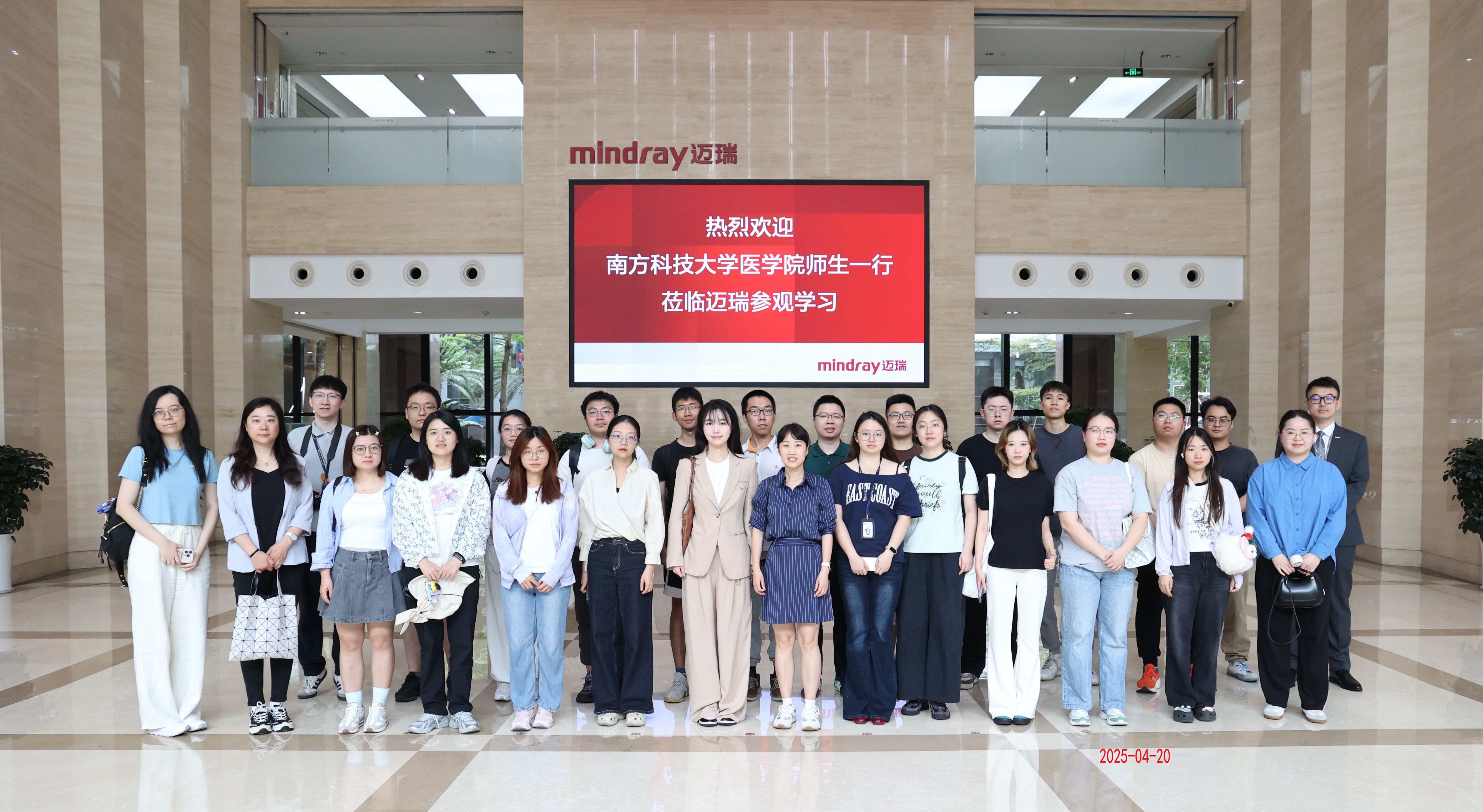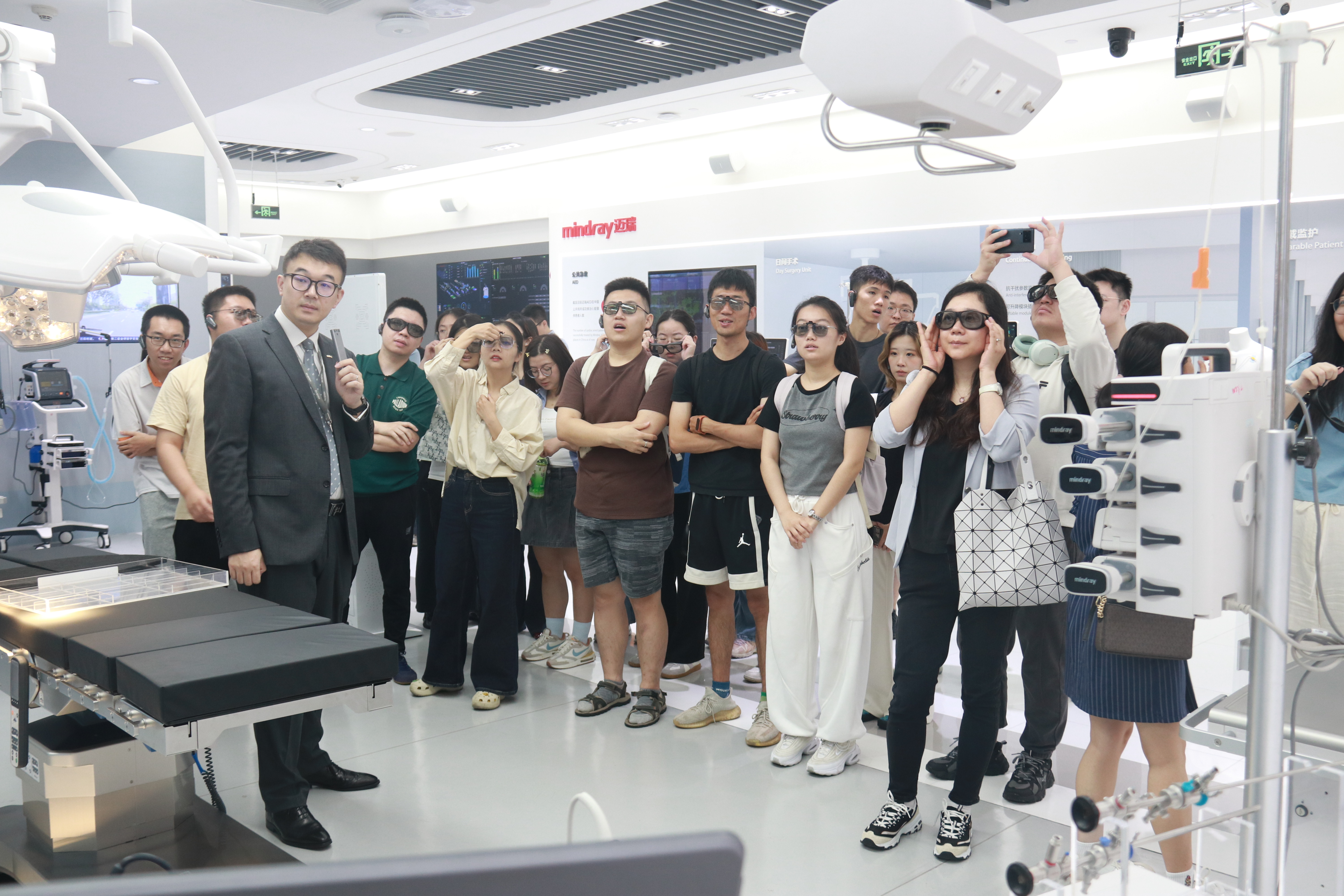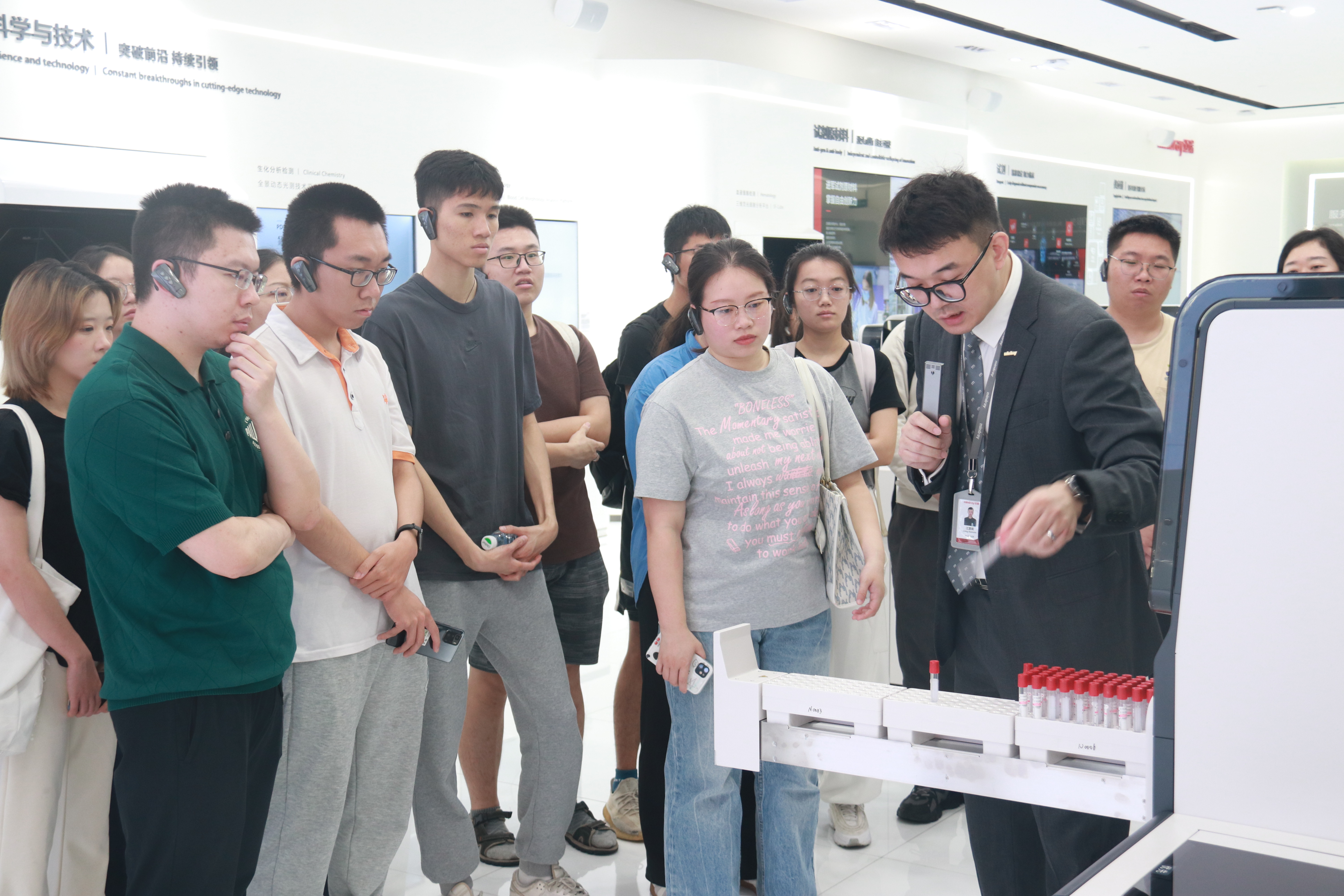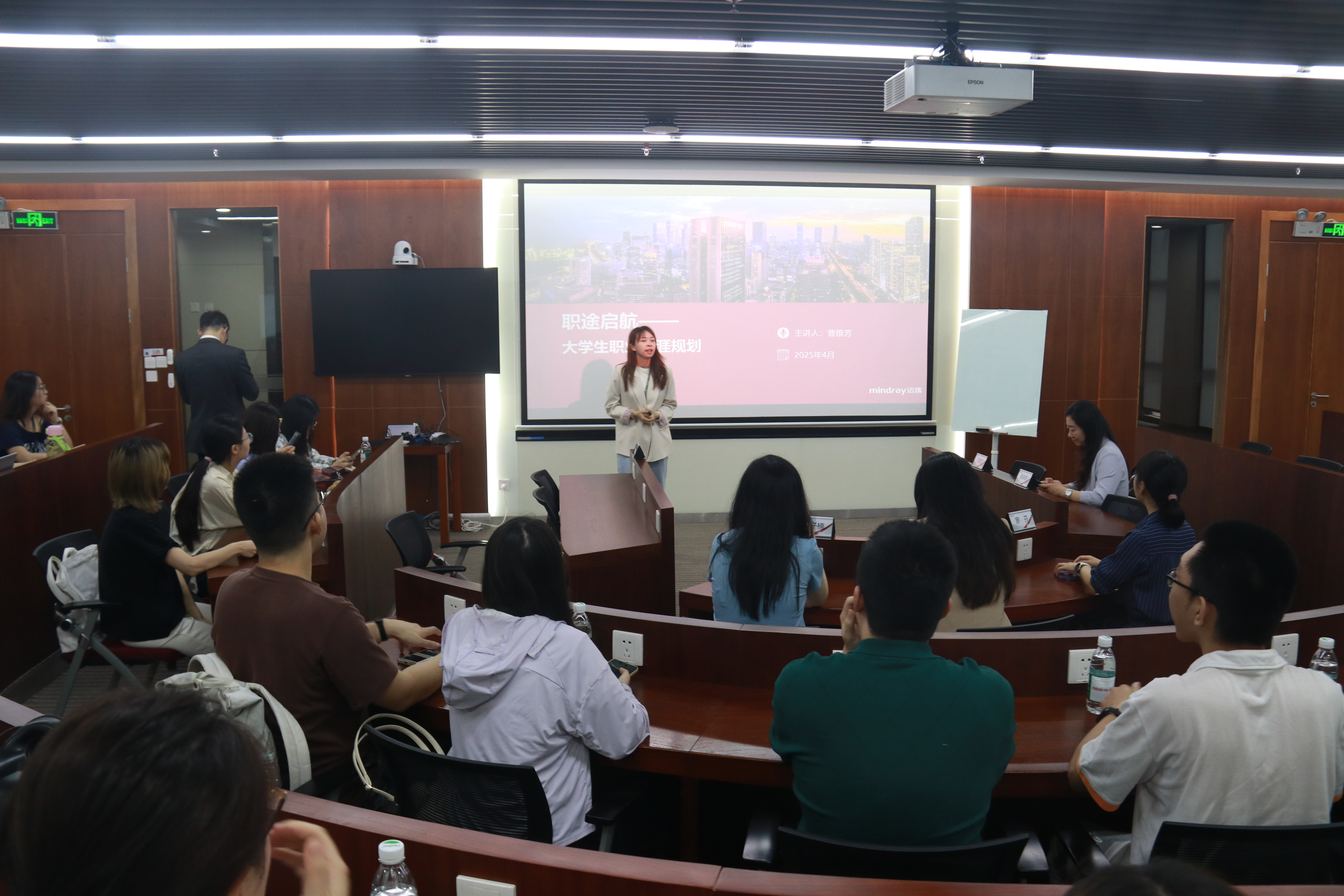SKMed Students Visit Mindray Medical: Learning Through Experience, Exploring the Dual Path of Technology and Career
To further advance the integration of medicine and engineering in education and broaden medical students’ understanding of medical technology and career development, on April 21, 2025, a visit to Mindray Medical for 29 undergraduate and graduate students was organized. They were accompanied by Dr. Diao Yuwen, Executive Deputy Director of the Research Office; Luo Fen, Executive Deputy Director of the Student Affairs Office; and Li Lintong, Secretary of the Youth League Committee.
This visit consisted of three main parts: a guided tour of the company showroom, hands-on experience with core business segments, and a career development discussion. Together, they provided students with a practical platform to understand cutting-edge developments in the medical industry and explore diverse career paths.

Image | Group Photo
First Impressions of Mindray: From "Gap Filler" to "Industry Leader"
Led by a company guide, the students toured the Mindray showroom, gaining a direct understanding of the company’s development, product portfolio, and global influence. Since its founding, Mindray has adhered to independent innovation, breaking through technological barriers in multiple subfields. It has progressed from filling industry gaps to becoming a leader, gradually building the international reputation of "Made in China" medical equipment.
In the Life Information and Support exhibition area, students wore 3D glasses to immerse themselves in a digital operating room experience and felt the revolutionary changes brought by intelligent systems. The guide also introduced the “Qiyuan Critical Care Large Model,” co-developed with Tencent, which has been clinically implemented to provide intelligent assistance and personalized treatment recommendations for doctors, showcasing the powerful potential of AI in medicine.
In the In Vitro Diagnostics and Medical Imaging sections, students learned about advanced platforms such as intelligent testing systems and ultrasound imaging equipment. They also observed a live demonstration of a smart laboratory workflow, experiencing firsthand how automation and information technologies are efficiently integrated into healthcare. The demonstration of portable imaging devices also sparked interest in the trends of mobile and precision diagnostics.


Image | Students Touring the Mindray Showroom
Career Roundtable: From Medical Majors to Diverse Career Paths
The final segment of the visit was a career development discussion hosted by Mindray’s Human Resources Department, themed “Explore Yourself, Plan Your Future.” HR representatives gave a structured introduction to mainstream career assessment tools such as Super’s Career Development Theory, the Iceberg Model, and MBTI, helping students understand their strengths and plan their career paths more scientifically.
The discussion emphasized that students with medical backgrounds are well-suited not only for clinical or research roles, but also for positions in medical device R&D, product support, and market sales. In particular, interdisciplinary talent familiar with both medical knowledge and clinical settings is in high demand—especially in areas like in vitro diagnostics and medical imaging. HR representatives encouraged students to broaden their horizons, leverage their strengths, and embrace the diverse opportunities in the “Medicine +” pathway.
During the session, students actively asked questions about resume optimization, interview techniques, job matching, and Ph.D. program alignment. HR staff responded in detail, creating a lively and engaging atmosphere. Many students shared that the exchange gave them a clearer understanding of their career direction and made them realize that career planning is an ongoing process of exploration and growth.

Image | Career Development Roundtable
Learning Through Action: Walking a New “Medicine +” Path
This visit to Mindray Medical enabled students to gain close-up insights into the current state and technological frontiers of the medical device industry, promoting deeper integration between medical education and industrial practice. Looking ahead, SUSTech’s SKMed will continue to expand university-industry collaboration platforms, institutionalize the integration of education and industry, and support students in broadening their perspectives through real-world experiences, honing their skills through practice, and finding their direction through exploration—empowering them to become future leaders in medicine.

